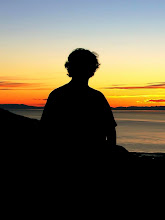It is true that some of these concepts form the very foundations of our knowledge while others have been replaced by newer thinking. But what do we, who are so privileged to be born into such a wealth of knowledge, know of the men on whose shoulders we stand?
Behind every concept, every fact we learn, stands a man or woman who had the temerity to question that which no one else did, the eye to see that which no one else did, the clarity of thought to understand that which befuddled their peers and the steel of will to stand up to the arrogance, such as can only stem from ignorance.
Before we can even begin to comprehend the magnitude of their achievements, we must question the very nature of their work. To say that those men and women sought to learn the truth, to expand knowledge, we must first ask ourselves what we mean by “knowledge”. What does it mean to “know”?
Fact is something we know is true... or is it? It is an idea we arrive at by interpreting observations that we make... answers we attain for the questions we ask. But the “facts” that we ascertain are limited by our own shortcomings – in the questions we are able to ask, in our powers of observation and above all in the insight we possess, with which we draw our conclusions.
Thus, we must understand that “fact” is not that which we are able to prove the correctness of but rather that which we are unable to prove the incorrectness of. An accepted scientific theory is merely an idea that can not be proven incorrect by the existing level of understanding.
People in the middle ages “knew” that the earth was flat just as we know today that matter is composed of atoms. By not being taught of the nature of knowledge, we are prone to foolishly laugh at our predecessors for what we perceive as their follies. But we ourselves would be the fools to do so. What we must realize is that each invention, each discovery was made by someone who challenged not merely the beliefs but the very “knowledge” of their times. Such are not men of an everyday sort.
These were men who experienced the world in all its brilliant detail. They looked upon it with the wonder of a child. They refused to allow themselves to become numb to the little things, caught up in the maelstrom of mundane issues that compose the average person’s life. And when they saw something that intrigued them, they questioned the nature of it and pursued the answers to those questions with relentless vigor.
Asking questions is merely the first step of a long journey. To answer them, one must make observations about the subject of one’s inquiry. This, simple as it may seem, is a problem, the solution to which is often the product of considerable brilliance, ingenuity and patience. To make an observation, one must isolate that which one wishes to observe – isolate it from the tangle that seems to be the unifying character of reality itself. Once that is accomplished, the event under study must be transduced into one that is perceptible to our limited senses. These twin problems were solved by the great men of science through the design of experiments. Therefore we must devote as much attention to the experiments that resulted in great findings as we do to the findings themselves.
Observations alone do little to push back the boundaries of knowledge. They must be churned in the mills of powerful minds, unfettered by prejudice, before they may be forged into insights into the very workings of reality itself.
And all too often such discoveries fly in the face of years of dogma, which does little to endear their proponents to the upholders of convention. True, every new idea must be tempered by criticism to weed out the kinks but that often becomes the pretext under which new ideas and the men behind them are condemned and ostracized. The abuse that one is subjected to for voicing new ideas ranges from being decried as a fool by society in the mildest cases to being stoned to death as some great thinkers were. It is a testament to the courage and the strength of will of these great men that their ideas survived the persecutions that sometimes they themselves did not.
Not only is it gravely wrong to speak of their work without speaking of them but it is foolish to ignore the many lessons we may learn from their lives. It is therefore my opinion that science must be taught in its entirety with due consideration to the human element that underlies it – not just as disembodied facts and figures. After all, history is not made by kings alone!


